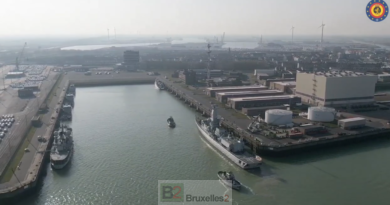[Yugoslavia Memory of a disaster] 1991, the scattered recognition of the former countries of Yugoslavia
Not acknowledging is keeping the pressure on
Three months ago, Slovenia and Croatia proclaimed themselves independent states. And for three months, the European states have refused him this independence. But the fervor of the "no" at the start
is more. We gradually moved from “refusal”, then from a vague notion of “negotiated independence”, to today's reality: “independence, okay. But not right now". As the
notes a British official, “It is quite obvious that the federation is ruined. (But) not immediately recognizing Slovenia and Croatia is a way for us to maintain
pressure, to force each of the parties to find an amicable solution upon leaving the federation”. As a result of this pressure, the Slovenes and Croats are trying to force
assert their sovereignty by all means.
What is a State?
In the classical sense, in fact, a State is constituted when a government effectively exercises its power over a given territory and people. The difficulty is then to determine
"I'effectivenessof this government. For Jean Combacau, professor at the Institute of Advanced International Studies of Paris II, ”this government must have real control
of this authority. In Croatia, for example, one cannot, if one sticks to legal rigor, consider that there is a Croatian state as long as the former central government succeeds in maintaining a
important piece of his authority.” For Slovenia, it seems simpler. Because “by withdrawing its armies, and leaving Slovenia to govern itself, Belgrade has, all in all, recognized
tacit, but clear way, Slovenian independence”. It remains to establish the traces of this sovereignty. On the one hand, Slovenia, like Croatia, has been issuing their own
passports, recognized today by several European States, an important first step towards diplomatic recognition. On the other hand, even if the internal border in Yugoslavia does not exist
again in a tangible way, the “external” border posts are now guarded by Slovenian agents. The only fly in the ointment: money. Admittedly, Slovenia has adopted a national currency,
but the Tolar is not yet accepted in everyday use. In addition, the Ljubljana government continues - on the sly - to print Yugoslav dinar!
Those who recognized, those who did not
If almost all the States of Europe, even those which are not part of it, such as Switzerland or the Nordic countries, claim to align themselves with the position of the European Community, each qualifies its
alignment. All Europeans want a consensus but without having what content to give it. Some have thus recognized the validity of Croatian and Slovenian passports. Others claim to be ready
to recognize new States... but only when another has taken the first step. Clearly, everyone is waiting for the first act of recognition. Germany and Italy look good
placed in this race for leadership...
Group 1: recognition of independence = Estonia...
Group 2: recognition of passports = Austria, Italy, Czechoslovakia, Hungary...
Group 3: waits for the first gesture = Nordic countries...
Group 4: the Community = Denmark, Spain (“you can't force people who don't want to live together”), France
(article published in La Truffe, November 13, 1991 © NGV with JSI infography)
